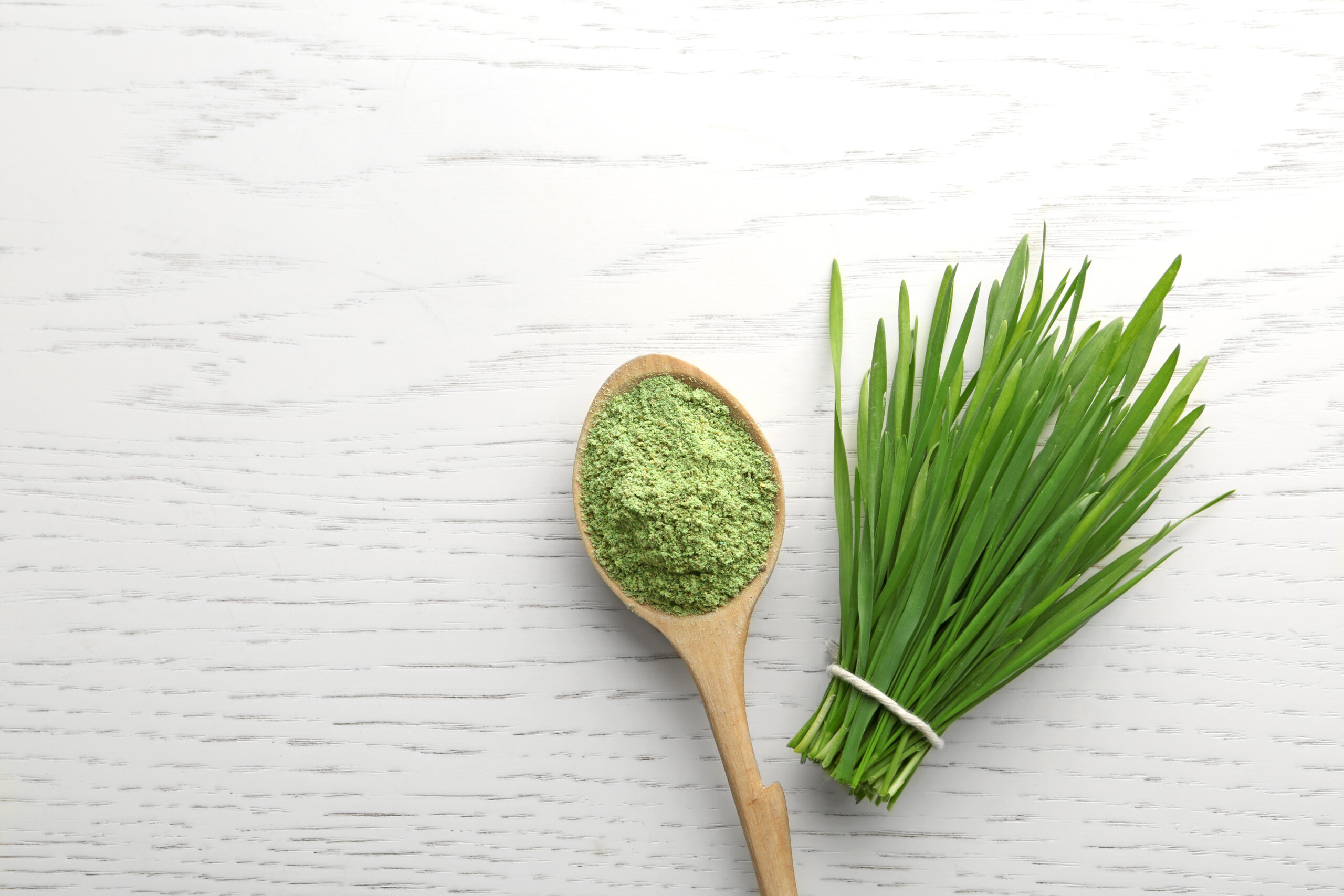In the realm of natural superfoods, wheatgrass stands out as a vibrant green powerhouse, known for its impressive array of health benefits. This young, tender grass of the common wheat plant (Triticum aestivum) has been a staple in holistic health practices for decades. With its remarkable nutrient profile and potential therapeutic properties, wheatgrass has earned a reputation as a potent health elixir. In this comprehensive article, we will explore the extensive health benefits of wheatgrass and delve into why it continues to captivate the wellness world.
What is Wheatgrass?
Wheatgrass is the young grass of the wheat plant, harvested just before it reaches its reproductive stage. It is typically consumed in the form of fresh juice, powdered supplements, or as an ingredient in various health products. Wheatgrass has gained popularity in recent years for its nutritional richness, offering a wide range of essential vitamins, minerals, antioxidants, and chlorophyll.
What Nutrients Does Wheat Grass Contain?
Wheatgrass earns its status as a superfood due to its impressive nutrient density. It is a rich source of several essential nutrients, including:
Vitamins
Wheatgrass is abundant in vitamins, particularly vitamin A, vitamin C, and the B-complex vitamins (B1, B2, B3, B5, B6, and B12). These vitamins play essential roles in immune function, energy metabolism, and overall health.
Minerals
It contains essential minerals such as iron, magnesium, calcium, potassium, and zinc. These minerals are vital for maintaining healthy bones, muscles, and various bodily functions.
Antioxidants
Wheatgrass is loaded with antioxidants, including vitamins C and E, as well as flavonoids, which help combat oxidative stress and protect the body from free radical damage.
Chlorophyll
The vibrant green color of wheatgrass is due to its high chlorophyll content. Chlorophyll is often referred to as “liquid sunshine” and is known for its detoxifying and antioxidant properties.
Health Benefits of Wheatgrass
Here are the primary benefits of wheat grass…
Detoxification
One of the most celebrated benefits of wheatgrass is its potent detoxifying effect. Chlorophyll, the primary pigment in wheatgrass, can bind to heavy metals and toxins in the body, aiding in their removal. Regular consumption of wheatgrass may support the body’s natural detoxification processes.
Immune System Support
Wheatgrass is rich in nutrients that bolster the immune system. Its vitamin C content, in particular, can enhance immune function, making the body more resilient to infections and illnesses.
Digestive Health
Wheatgrass may promote digestive health by supporting the growth of beneficial gut bacteria. A healthy gut microbiome is essential for proper digestion, nutrient absorption, and overall well-being.
Anti-Inflammatory Effects
Chronic inflammation is linked to various health issues. Wheatgrass contains compounds with anti-inflammatory properties that may help alleviate symptoms associated with conditions like arthritis and inflammatory bowel disease.
Blood Health
Wheatgrass has been shown to support healthy blood function. Its chlorophyll content may help increase red blood cell production, improving oxygen transport throughout the body.
Alkalizing Properties
Wheatgrass is considered an alkaline food, which means it can help balance the body’s pH levels. An alkaline environment is believed to promote overall health and reduce the risk of chronic diseases.
Skin Health
The antioxidants in wheatgrass can promote healthy, radiant skin. Some individuals incorporate wheatgrass into their skincare routines to support skin health and reduce the signs of aging.
Weight Management
Wheatgrass can be a valuable addition to a weight management plan due to its low-calorie content and nutrient density. It provides essential nutrients without adding excess calories to your diet.
How to Incorporate Wheatgrass Into Your Diet
Incorporating wheatgrass into your daily routine can be done in several ways:
- Wheatgrass Juice: Fresh wheatgrass juice is a popular choice. You can juice it at home if you have a wheatgrass juicer, or you can find it at juice bars and health food stores.
- Wheatgrass Powder: Wheatgrass is available in powdered form, which can be easily mixed into smoothies, water, or other beverages.
- Wheatgrass Supplements: If you prefer a convenient option, wheatgrass supplements in tablet or capsule form are available.
- Wheatgrass Shots: Some health food establishments offer wheatgrass shots, which are concentrated doses of wheatgrass juice for a quick nutrient boost.
Potential Wheat Grass Side Effects
While wheatgrass offers numerous health benefits, it’s essential to consider a few precautions:
- Allergies: Some individuals may be allergic to wheatgrass. If you have a wheat allergy or gluten intolerance, it’s crucial to exercise caution and consult with a healthcare professional.
- Digestive Sensitivity: Wheatgrass may cause mild digestive discomfort in some people, especially when consumed in large quantities. Start with small amounts to assess your tolerance.
- Purity and Quality: Ensure that the wheatgrass products you choose are of high quality and free from contaminants. Organic and certified wheatgrass products are typically a safe bet.
- Medication Interactions: If you are taking medications or have underlying health conditions, consult with a healthcare professional before adding wheatgrass to your diet, as it may interact with certain medications or exacerbate certain health issues.
Wheat Grass Benefits Conclusion
Wheatgrass, with its exceptional nutrient profile and a wide range of health benefits, is indeed a green elixir of health and vitality. Whether you are seeking to support detoxification, boost your immune system, enhance digestive health, or improve overall well-being, wheatgrass offers a natural and effective solution. However, as with any dietary supplement, it’s essential to exercise caution and consult with a healthcare professional before incorporating wheatgrass into your daily routine, especially if you have specific health concerns or conditions. When used wisely, wheatgrass can be a potent ally in your journey towards better health, harnessing the power of this vibrant green superfood for a healthier, more energetic you.
Read about the best superfood supplements on the market here: Top Superfood Supplements
REFERENCES
- WebMD
- Healthline
- Cleveland Clinic
- Nutritional Quality and Antioxidant Activity of Wheatgrass (Triticum aestivum) Unwrap by Proteome Profiling and DPPH and FRAP assays
- The Medical Use of Wheatgrass: Review of the Gap Between Basic and Clinical Applications
- Effect of Wheatgrass Juice on Nutritional Quality of Apple, Carrot, Beet, Orange and Lemon Juice
- Evaluation of Diet Supplementation with Wheat Grass Juice on Growth Performance, Body Composition and Blood Biochemical Profile of Carp (Cyprinus carpio L.)
I’m not just a supplement analyst. I’m an extremely qualified one! I am a Certified Nutrition Coach (CNC) and actually received my certification directly from the National Academy of Sports Medicine. I am also a Nutrition & Wellness Consultant, certified by the American Fitness Professionals Association (AFPA).



